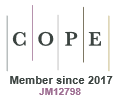Editorial
Invertebrate Systematics 24(1) iii-iii https://doi.org/10.1071/ISv24n1_ED
Published: 17 May 2010
Invertebrate Systematics enjoyed a successful year in 2009 – the journal’s first full year operating under a new Editorial Board. The breadth of coverage in the journal was extensive, in terms of the groups covered and the approaches taken. Not surprisingly, the arthropods dominated: arachnids (covering Acari, Araneae and Opiliones), insects (covering Coleoptera, Diptera, Hemiptera, Hymenoptera and Mantodea) and crustaceans (covering Decapoda and Isopoda) comprised more than 80% of the published articles. Single papers focused on annelids, echinoderms and molluscs. Across this spectrum of research, there were several comprehensive revisionary studies – for example, the oribatid mite genus Austronothrus and the opilionid subfamily Goniosomatinae – and a broad range of approaches: notably the supertree analysis for the dipteran family Therevidae; the recognition of cryptic species of serpulid annelids and trochid molluscs using molecular approaches; and the application of phylogenies to interpret structure and function, such as the evolution of male genitalia in mantids and the behaviour of nephilid spiders.
This year, Invertebrate Systematics continues its development by introducing a new type of article. ‘Viewpoint’ articles are similar to reviews in that they will critically assess specific topics of broad interest, explore significant questions, examine the validity of current views in the field, and recommend directions for future research. However, they also go a step further by giving authors the freedom to present thought-provoking ideas, develop novel hypotheses, and speculate on controversial topics.
Few systematics journals provide authors with such a forum; we hope that these new viewpoint articles will provide a stimulating basis for the exploration of interesting and controversial subjects, and will provoke discussion among researchers.
To begin with, viewpoint articles will be published in odd-numbered issues of the journal and will be commissioned by members of the Editorial Board. However, prospective authors are welcome to send proposals to the Editor-in-Chief, who will assess their suitability for publication. Viewpoint articles, like all content in Invertebrate Systematics, are subject to peer review.
The first viewpoint article, in this issue, comes from Gonzalo Giribet (Harvard University) and Sarah Boyer (Macalester College, Saint Paul, Minneapolis). Together, they critically assess the contentious view that New Zealand was completely submerged during the Oligocene and that all its current biota is derived from dispersing forms over the past 22 million years. Their assessment, based on a number of molecular studies, is that there is strong evidence for at least some short-range endemic soil-dwelling invertebrates representing old lineages that diversified in New Zealand well before the hypothesised submersion. In this respect, ‘‘Moa’s Ark’ or ‘Goodbye Gondwana’: is the origin of New Zealand’s terrestrial invertebrate fauna ancient, recent, or both?’is particularly interesting given the importance of New Zealand as a natural laboratory for biogeographers in recent decades, in that it has been used to test competing dispersal versus vicariance hypotheses across a broad range of taxonomic groups, probably more so than for any other continental landmass.
In their scope and approach, Giribet and Boyer encapsulate the essence of a viewpoint article by examining a prevailing view, offering an alternative explanation based on an assessment of several published studies, and rigorously defending that explanation. By adding viewpoint articles to the diverse array of invertebrate studies from many of the key researchers in their respective fields, Invertebrate Systematics aims to provide a forum for exploring contemporary issues that are both relevant and interesting to a broad readership.
We welcome your feedback on these articles and all content in the journal, and wish you all the best for a productive 2010.
Andy Austin
Editor-in-Chief


